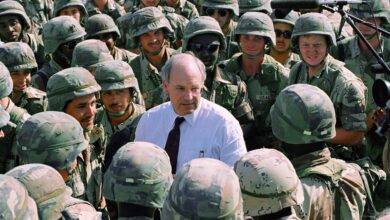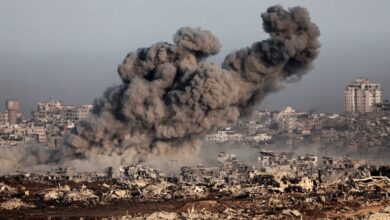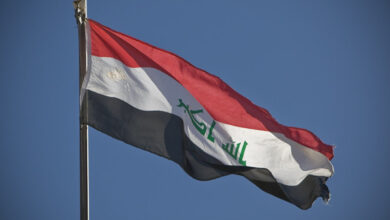Baghdad–Prime Minister Nuri al-Maliki came out of local polls last year as Iraq’s dominant leader, but a string of bombings and alliances among rivals have weakened him ahead of a March national vote.
A Shia sentenced to death under Saddam Hussein, Maliki is likely aware of his dented popularity as he has reverted to proven vote-winning methods, like stirring up Shia fears of a return of Saddam’s Baath party, to win the ballot, analysts say.
Oil firms holding freshly signed deals to tap Iraq’s vast reserves, and the U.S. military set to withdraw in 2011, hope for some form of political continuity after the March 7 parliamentary election, but Maliki’s former allies want change.
Some voters who supported his State of Law coalition in the local election last January also seem to have second thoughts.
"I will definitely not give my vote to a government that cannot provide security. Every day they take us back to square one by not stopping the merciless killing of Iraqis," said Qassim Abdullah, a student, in the Shia holy city of Kerbala.
Maliki was picked as prime minister in 2006 as a compromise between feuding factions, who thought he could be manipulated.
In the past two years, however, he has emerged as a strong leader credited with reducing the sectarian violence that wracked Iraq after the 2003 U.S. invasion. With a nationalist, non-sectarian message and a law-and-order campaign platform, his State of Law coalition swept the Shia south last January.
Since then, huge, coordinated suicide bombings have rocked Baghdad, killing hundreds at heavily guarded sites, and shaking confidence in the security forces and Maliki.
Maliki blames the attacks on Saddam’s outlawed Baath party, and on Sunni Islamist insurgents like al Qaeda.
As the rumble of bombs rolled repeatedly across Baghdad, Maliki’s rhetoric seeking credit for improved security receded, while anti-Baathist rhetoric escalated.
He has thrown his weight behind a Shia-controlled body that banned scores of poll candidates for alleged Baathist ties. His Dawa party has also led calls for a purge of suspected Baathists from the public service.
The Baath party brutally oppressed Kurds and Shias, Iraq’s majority Muslim sect, but Iraq’s once dominant Sunnis and cross-sectarian groups see both the candidate ban and calls for a purge as a witch hunt, and a return to sect-based politics.
"I thought Maliki’s provincial election campaign message was that he could move away from that to rallying voters with a message of nationalism, law-and-order and a strong state," said analyst Toby Dodge of Queen Mary College, University of London.
"It seems to me that he’s lost his nerve, partly because the law-and-order campaign has proved to be much more difficult than he thought."
Maliki still holds some powerful cards.
He is not seen as corrupt, has huge brand recognition in a sea of largely unknown candidates, is able to draw on an established and experienced campaign network, and also on state resources, such as Iraqiya television.
Yet he has also turned powerful allies into opponents.
The Supreme Islamic Iraqi Council (ISCI), a major Shia party, and followers of cleric Moqtada al-Sadr once supported Maliki in parliament’s largest Shia bloc, but analysts say they have become alarmed at his growing assertiveness.
ISCI and the Sadrists, who were enemies in the past, have banded together to form an election alliance while Maliki is running alone at the head of his own coalition.
"They are held together by a common desire to do away with Maliki above all. They have little common ground beyond that. He’s succeeded in aligning the major Shia players against him," said International Crisis Group analyst Peter Harling.
Many Iraqis say they are tired of sectarian politics after tens of thousands of deaths during the years of violence between Sunnis and Shias. They are also tired of poor services under the Islamist leaders who have dominated Iraq since the invasion.
By turning his back on non-sectarian nationalism, Maliki may lose the broad appeal that saw him do well in the local polls.
"Back then, he managed to handle the security file in a non-sectarian way and that impressed many Iraqis," said analyst Reidar Visser of www.historiae.org.
"He has not managed to handle the de-Baathification issue in that kind of national spirit. Instead he has fallen back to the old Shia Islamist hardliner rhetoric."




